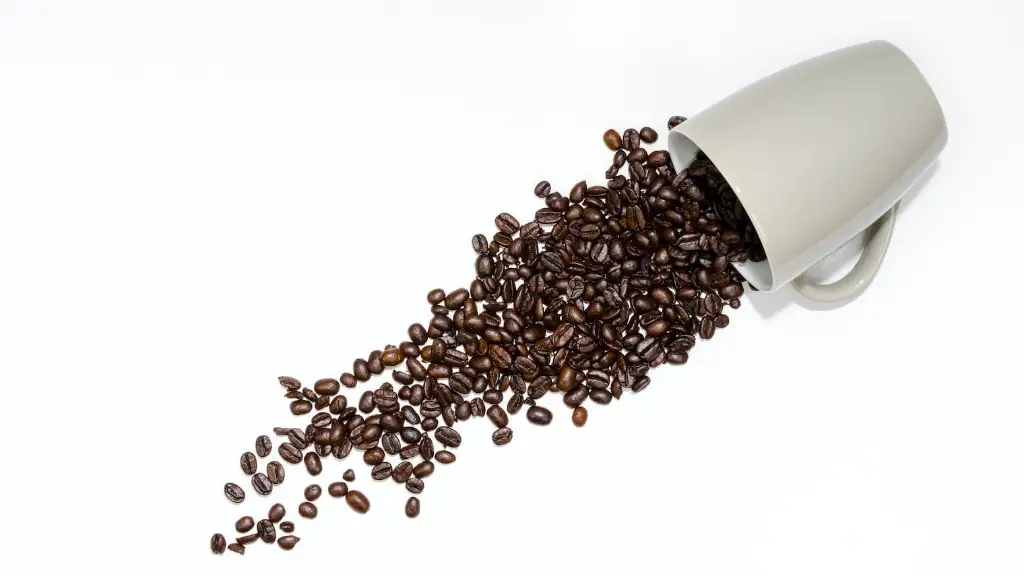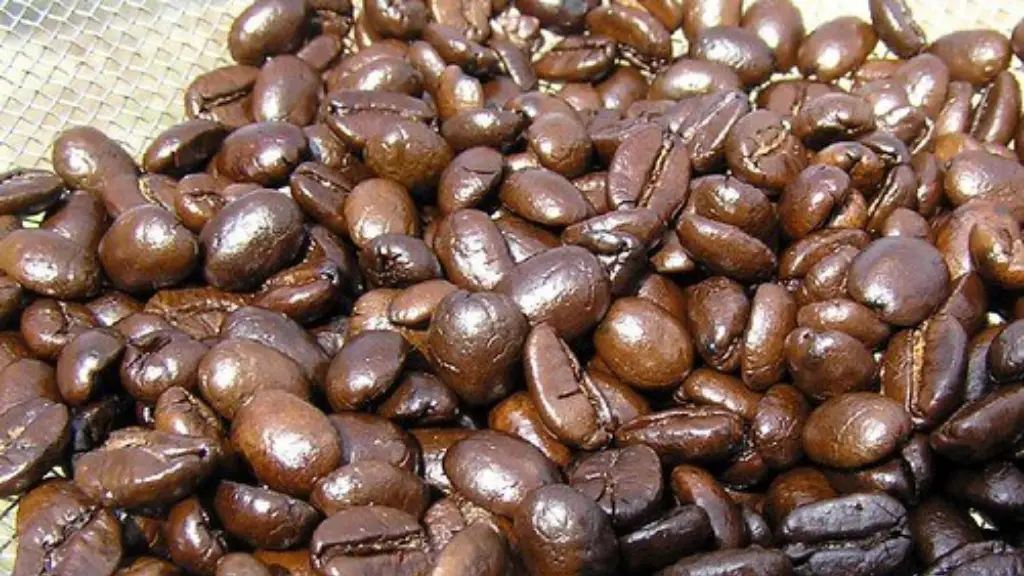One of the most commonly asked questions regarding coffee consumption after an ablation procedure is whether it is safe to drink or not. The answer to this question varies depending on the individual and their health condition, as well as the type of ablation they have undergone. It is important to consult a healthcare provider before drinking coffee as it is not suitable for everyone, especially those with existing heart problems.
Before going into detail about drinking coffee after an ablation, it is important to understand what it is. An ablation is a procedure that uses energy to treat electrical problems in the heart. It is commonly used to treat irregular heartbeats (arrhythmia). Ablation is often used to treat atrial fibrillation, the most common type of arrhythmia. During this procedure, a catheter is passed through the blood vessels and sent to the heart. Radiofrequency energy is then sent through the catheter to heat the heart tissue and destroy the cells that cause the arrhythmia.
There has been extensive research on the effects of drinking coffee after an ablation procedure, and the results are mixed. Some studies have found that drinking coffee can increase the risk of complications after an ablation. One study showed that patients who drank four or more cups of coffee a day had a higher risk of experiencing atrial fibrillation after their procedure than those who did not drink coffee. Other studies have found that drinking coffee may not be associated with a higher risk of complications after an ablation.
Many experts believe that moderate coffee consumption is generally safe after an ablation. The American College of Cardiology recommends that people who have undergone an ablation limit their coffee intake to less than 3 cups per day. It is also important to note that caffeine can potentially worsen some of the symptoms of arrhythmia, such as palpitations or fatigue. Therefore, it is important to discuss any concerns about caffeine consumption with a healthcare provider.
In addition to the potential risks associated with drinking coffee after an ablation, there are also potential benefits. Coffee is known to have a variety of beneficial compounds, including antioxidants. In addition, some studies have suggested that moderate coffee consumption may reduce the risk of certain types of cancer. Therefore, while it is important to limit coffee consumption after an ablation, some experts believe that moderate consumption may still have health benefits.
In conclusion, it is important to discuss the risks associated with drinking coffee after an ablation procedure with a healthcare provider. While moderate consumption may still have potential benefits, it is important to be aware of the potential risks and monitor any changes in symptoms.
Alternatives To Coffee After Ablation
It is natural for some people to be concerned about drinking coffee after an ablation procedure. However, there is no need to completely forgo the beverage. Instead, switching to decaffeinated versions or herbal teas can still provide some of the benefits that coffee has to offer without the potential risks associated with caffeine.
One of the most popular alternatives to coffee after an ablation procedure is herbal tea. Herbal tea contains a variety of different plants, soils and spices, all of which can provide different health benefits. For example, ginger tea has been shown to have anti-inflammatory properties and can possibly help reduce inflammation of the heart. In addition, peppermint tea may have benefits for digestion, and chamomile tea may have an effect on reducing stress and anxiety.
In addition to herbal tea, there are also other alternatives to coffee after an ablation. Some of these options include yerba mate, an herbal drink made from the leaves of the holly tree; dandelion root tea, which may help to detoxify the body; and kombucha, a fermented, probiotic drink that may help in digestion.
Finally, for those who are looking for a caffeine-free alternative, sparkling water is also an option. Sparkling water can provide the same refreshing and effervescence of coffee and can be flavoured with fruits and herbs, to add variety. Furthermore, it can be enjoyed cold or hot, depending on the individual’s preference.
Potential Complications After Ablation
One of the main potential risks associated with drinking coffee after an ablation is an increase in heart rate or rhythm. This is because caffeine is a stimulant and can cause the heart to work harder, which can increase symptoms of arrhythmia. In addition, drinking coffee after an ablation can lead to dehydration, as caffeine is a diuretic and can make the body produce more urine and lose more fluids.
Furthermore, drinking coffee can also increase the risk of developing blood clots. This is because caffeine has been associated with higher levels of an enzyme called heme oxygenase-1, which has been connected to increased risk of forming blood clots in the heart. Finally, drinking coffee after an ablation may also put additional strain on the heart and make it weaker over time.
Therefore, it is important to be aware of the potential risks associated with drinking coffee after an ablation and discuss any concerns with a healthcare provider. It is important to note that the American College of Cardiology recommends that those who have undergone such a procedure limit their consumption to less than 3 cups per day.
Other Tips After Ablation
Drinking coffee is not the only concern when it comes to ablation procedures. Other lifestyle factors may also play a role in improving recovery and reducing the possibility of complications. Getting exercise, reducing stress, and eating a nutritious diet are all important aspects of post-ablation recovery.
Exercising is an important part of recovery from an ablation procedure. Exercise can help to reduce the risk of developing abnormal heart rhythms, as well as helping to reduce stress and maintain a healthy weight. Additionally, it can be beneficial to reduce the amount of stress in one’s life. Good sleep habits and relaxation techniques, such as yoga and meditation, can be beneficial for managing stress.
Finally, eating a balanced and nutritious diet is important for overall health and can improve recovery after an ablation. A diet that includes lots of fruits and vegetables, lean proteins, healthy fats, and whole grains can help to provide the nutrients necessary for healing and to support a strong, healthy heart. Additionally, limiting the consumption of processed foods, saturated fats, and added sugars can help to reduce the risk of complications.
Follow Up Post Ablation
It is important to follow up with a healthcare provider after an ablation procedure. Regular checkups may help to detect any abnormalities or complications. During these visits, healthcare providers may check the heart’s rhythm and may order tests, such as an electrocardiogram or echocardiogram to assess the heart’s function. Additionally, healthcare providers may recommend lifestyle modifications to improve recovery and reduce the risk of complications.
In addition to regular checkups, it is also important to pay attention to any changes in symptoms. Whenever possible, it is best to report any changes in symptoms, such as palpitations or chest pain, as soon as possible to a healthcare provider. Additionally, any medications that were prescribed should be taken as directed to help manage symptoms and reduce the risk of complications.
Finally, it is important to be aware of potential warning signs and seek medical attention immediately if they occur. These warning signs may include shortness of breath, chest pain, dizziness, or fainting. Therefore, it is important to have a plan in place in case any of these warning signs occur.
Managing Post Ablation Symptoms
Some people may experience symptoms after an ablation procedure. While some of these symptoms may be normal, it is important to be aware of any abnormal or persistent symptoms that could be signs of a complication. Therefore, it is important to discuss any symptoms that occur with a healthcare provider.
Common symptoms after an ablation procedure include fatigue, nausea, chest pain, and palpitations. However, if these symptoms become severe or persist for an extended period of time, it is important to seek medical attention as soon as possible. Additionally, if any new or unusual symptoms occur, it is important to report them right away to a healthcare provider.
In order to manage any post-ablation symptoms, it is important to follow any instructions given by a healthcare provider. Adhering to any prescribed medications can help to reduce symptoms and monitor the success of the ablation. Additionally, lifestyle modifications, such as reducing stress and getting regular exercise, can be beneficial for managing symptoms.
Finally, it is important to stay informed and discuss any concerns about post-ablation symptoms with a healthcare provider. This can help to ensure that any symptoms are managed properly and reduce the risk of complications.





